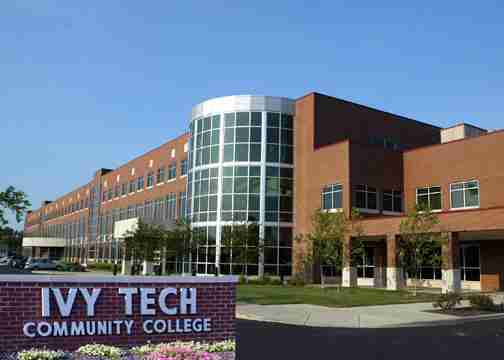INDIANAPOLIS (AP) _ Ivy Tech Community College is facing an Aug. 1 deadline to show progress in student success as state officials weigh whether to continue using the college system as a provider for workforce training and education programs.
The state funnels millions in federal Workforce Investment Act dollars to residents looking to improve their skills in the job market. Some take the money and go for two-year degrees, such as for a licensed practical nurse, while others attend short-term programs for industry certifications.
Providers are required to meet minimum completion rates set by the State Workforce Innovation Council. Two-year degree programs must graduate at least 28 percent students, while short-term, non-degree programs must achieve a 60 percent completion rate.
Ivy Tech is not meeting those thresholds for some programs, Indiana Department of Workforce Development spokesman Joe Frank told The Journal Gazette (http://bit.ly/1dbBmGS ).
Frank said the council is working with Ivy Tech to see if it can come into compliance.
“We have been very clear that we want to put our money where our mouth is. If we are going to put money on training and education programs, you have to have good results,” he said.
Ivy Tech is already feeling pressure from lawmakers who have ordered a state review of its programs because of concerns about low graduation rates and declining enrollment. A state report showed fewer than 30 percent of its students complete a certificate or associate degree program within six years.
Jeff Fanter, Ivy Tech’s senior vice president of student experience, communications and marketing, said Ivy Tech students define success many different ways.
“We are always looking to ensure and improve the success of our students. In some cases, students prove successful in the workplace prior to completing a credential with us, and others take a longer period of time to complete a degree or certificate,” Fanter said.
The state gives about $58 million in federal workforce dollars to Hoosiers trying to gain post-secondary education and training. The most recent data show that about $6.5 million is going to about 4,500 students through Ivy Tech.
Derek Redelman, member of the State Workforce Innovation Council, questioned why Ivy Tech and other providers should continue to be eligible for new money when the success rate is so low.
“It is fair to question whether the state should continue to send people there with taxpayer dollars,” Redelman said. “This was a long effort with lots of notice given, and it was a very low bar.”
Frank, the workforce development spokesman, acknowledged that changes might be necessary but suggested a cautious approach.
“There will have to be a point when we have to clamp down and say `I’m sorry, you aren’t meeting the standards,”’ Frank said. “But they are a major partner, have infrastructure around the state, so we really rely on them. We can’t just say, `We’re done with you.”’













No Comment